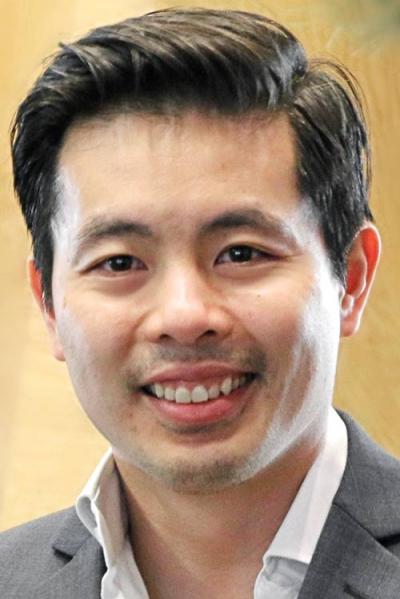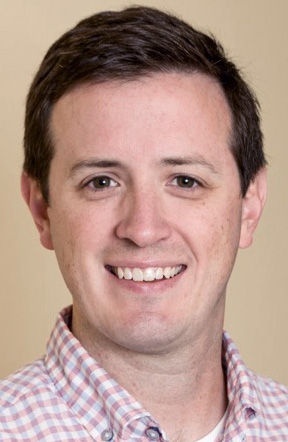/ Featured Blogs
Our Digital Illiteracy
 Pew Research Center recently surveyed 4,272 adults and tested their knowledge of basic computer topics. The results showed that there was a lack of general knowledge about a few of the terms that are important for how people use the Internet. For example, the survey showed that only 30% of survey takers knew that website starting with https:// means that the information provided over that site is encrypted. Only 28% of respondents understood the concept of two-factor authentication... more
Pew Research Center recently surveyed 4,272 adults and tested their knowledge of basic computer topics. The results showed that there was a lack of general knowledge about a few of the terms that are important for how people use the Internet. For example, the survey showed that only 30% of survey takers knew that website starting with https:// means that the information provided over that site is encrypted. Only 28% of respondents understood the concept of two-factor authentication... more
- By Doug Dawson
- Comments: 0
- Views: 7,083
Fadi’s .ORG Fracasso
 The stakeholder community needs to get with the program and assert itself now – if it still can. The recent attempts by the Internet Society (ISOC) to wrap itself in the halo of Jon Postel's "original intent" for .org is specious and laughable. As I've previously published, Postel also didn't like how big the top-level domains were getting and suggested, in 1993, that top-level domains should be capped at 10,000 names and that further zone growth should happen at the second- and third-levels (similar to how the UK has .uk and then .com.uk, for example). more
The stakeholder community needs to get with the program and assert itself now – if it still can. The recent attempts by the Internet Society (ISOC) to wrap itself in the halo of Jon Postel's "original intent" for .org is specious and laughable. As I've previously published, Postel also didn't like how big the top-level domains were getting and suggested, in 1993, that top-level domains should be capped at 10,000 names and that further zone growth should happen at the second- and third-levels (similar to how the UK has .uk and then .com.uk, for example). more
- By Greg Thomas
- Comments: 1
- Views: 7,622
The Early History of Usenet, Part VII: Usenet Growth and B-News
 For quite a while, it looked like my prediction – one to two articles per day – was overly optimistic. By summer, there were only four new sites: Reed College, University of Oklahoma (at least, I think that that's what uucp node uok is), vax135, another Bell Labs machine – and, cruciallyy, U.C. Berkeley, which had a uucp connection to Bell Labs Research and was on the ARPANET. more
For quite a while, it looked like my prediction – one to two articles per day – was overly optimistic. By summer, there were only four new sites: Reed College, University of Oklahoma (at least, I think that that's what uucp node uok is), vax135, another Bell Labs machine – and, cruciallyy, U.C. Berkeley, which had a uucp connection to Bell Labs Research and was on the ARPANET. more
- By Steven Bellovin
- Comments: 0
- Views: 9,366
What to Make of the Inaugural NetThing 2019
 The last Australian Internet Governance Forum (auIGF) was held in October 2016 before the annual event was cancelled as part of an auDA review. Three years on and the auIGF replacement – NetThing – was held in Sydney on 28 October 2019, though I was surprised to see that this Australian Internet event no longer had an associated .au domain name, instead choosing to go with NetThing.info. more
The last Australian Internet Governance Forum (auIGF) was held in October 2016 before the annual event was cancelled as part of an auDA review. Three years on and the auIGF replacement – NetThing – was held in Sydney on 28 October 2019, though I was surprised to see that this Australian Internet event no longer had an associated .au domain name, instead choosing to go with NetThing.info. more
- By Quoc Pham
- Comments: 0
- Views: 6,327
IGF2019 Observation: Compare Chancellor Merkel’s Digital Sovereignty with Chinese and U.S. Version
 The 2019 UN IGF is right now being held in Berlin and entering the last day. There has been a wide range of exciting discussions. It is a huge step forward that this year's IGF has been able to bring a plethora of topics together under a framework of thinking after the efforts done by the UN Secretary-General António Guterres' High-Level Panel on Digital Cooperation (The Age of Digital Interdependence) and by German scholars' engagement with all the stakeholders... more
The 2019 UN IGF is right now being held in Berlin and entering the last day. There has been a wide range of exciting discussions. It is a huge step forward that this year's IGF has been able to bring a plethora of topics together under a framework of thinking after the efforts done by the UN Secretary-General António Guterres' High-Level Panel on Digital Cooperation (The Age of Digital Interdependence) and by German scholars' engagement with all the stakeholders... more
- By Peixi (Patrick) Xu
- Comments: 0
- Views: 8,528
The .ORG Sale Is a Radical Departure That Puts the Internet at Risk
 It can be hard to take a side. Especially when you are with a big organization. I know, I used to work for the United Nations and ICANN. Neutrality is a huge part of that work. Your role is not to take a stand; it's to create the space for other people to take stands. To create and protect a neutral platform. That's what we all thought the Internet Society (ISOC) was doing for us by running .ORG. more
It can be hard to take a side. Especially when you are with a big organization. I know, I used to work for the United Nations and ICANN. Neutrality is a huge part of that work. Your role is not to take a stand; it's to create the space for other people to take stands. To create and protect a neutral platform. That's what we all thought the Internet Society (ISOC) was doing for us by running .ORG. more
- By Jacob Malthouse
- Comments: 0
- Views: 12,906
Why I Voted to Sell .ORG
 Hi, I'm Richard. I've been around the Internet for a while. I work for Cisco now, and used to lead security for Firefox. I've published a few RFCs and served on the Internet Engineering Steering Group (the board of the IETF). I was a co-founder of Let's Encrypt and I currently serve on its board. I care about the Internet, and I care about nonprofits. more
Hi, I'm Richard. I've been around the Internet for a while. I work for Cisco now, and used to lead security for Firefox. I've published a few RFCs and served on the Internet Engineering Steering Group (the board of the IETF). I was a co-founder of Let's Encrypt and I currently serve on its board. I care about the Internet, and I care about nonprofits. more
- By Richard Barnes
- Comments: 9
- Views: 81,552
Why Colombia Is About to Make a Colossal Mistake With .CO
 Ten years ago, the most effective branding exercise the internet registry market has ever seen began. And to celebrate the anniversary, its owner is going to strangle it. At the ICANN meeting in Montreal this month, the Government of Colombia booked a meeting room, prepared a Powerpoint presentation and invited representatives of the world's largest registry operators to attend. Once there, they were offered a rare and valuable opportunity: to take over running of the .co registry. more
Ten years ago, the most effective branding exercise the internet registry market has ever seen began. And to celebrate the anniversary, its owner is going to strangle it. At the ICANN meeting in Montreal this month, the Government of Colombia booked a meeting room, prepared a Powerpoint presentation and invited representatives of the world's largest registry operators to attend. Once there, they were offered a rare and valuable opportunity: to take over running of the .co registry. more
- By Kieren McCarthy
- Comments: 0
- Views: 21,743
The Early History of Usenet, Part VI: The Public Announcement
 Our goal was to announce Usenet at the January, 1980 Usenix meeting. In those days, Usenix met at universities; it was a small, comaparatively informal organization, and didn't require hotel meeting rooms and the like. (I don't know just when Usenix started being a formal academic-style conference; I do know that it was no later than 1984, since I was on the program committee that year for what would later be called the Annual Technical Conference.) more
Our goal was to announce Usenet at the January, 1980 Usenix meeting. In those days, Usenix met at universities; it was a small, comaparatively informal organization, and didn't require hotel meeting rooms and the like. (I don't know just when Usenix started being a formal academic-style conference; I do know that it was no later than 1984, since I was on the program committee that year for what would later be called the Annual Technical Conference.) more
- By Steven Bellovin
- Comments: 0
- Views: 8,385
Starlink Making a Space Grab
 SpaceNews recently reported that Elon Musk and his low-orbit space venture Starlink have filed with the International Telecommunications Union (ITU) to launch an additional 30,000 broadband satellites in addition to the 11,927 now in the planning stages. This looks like a land grab and Musk is hoping to grab valuable orbital satellite paths to keep them away from competitors. more
SpaceNews recently reported that Elon Musk and his low-orbit space venture Starlink have filed with the International Telecommunications Union (ITU) to launch an additional 30,000 broadband satellites in addition to the 11,927 now in the planning stages. This looks like a land grab and Musk is hoping to grab valuable orbital satellite paths to keep them away from competitors. more
- By Doug Dawson
- Comments: 1
- Views: 9,645